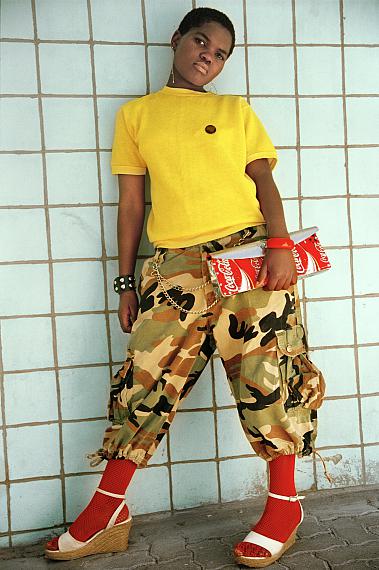
© The artist
Courtesy the artist, The Walther Collection, Neu-Ulm/New York,
and Goodman Gallery, Johannesburg
Shifting Dialogues
Photography from The Walther Collection
Martina Bacigalupo » Sammy Baloji » Oladélé Ajiboyé Bamgboyé » Yto Barrada » Bernd & Hilla Becher » Jodi Bieber » Edson Chagas » Mimi Cherono Ng’ok » Kudzanai Chiurai » Alfred Martin Duggan-Cronin » Theo Eshetu » Em'Kal Eyongakpa » Rotimi Fani-Kayode » Samuel Fosso » François-Xavier Gbré » David Goldblatt » Kay Hassan » Délio Jasse » Seydou Keïta » Lebohang Kganye » Sabelo Mlangeni » Santu Mofokeng » Singarum Jeevaruthnam Moodley (Kitty) » Zanele Muholi » Mwangi Hutter » Grace Ndiritu » Mame-Diarra Niang » J. D. 'Okhai Ojeikere » Dawit L. Petros » Jo Ractliffe » August Sander » Berni Searle » Malick Sidibé » Penny Siopis » Mikhael Subotzky » Guy Tillim » Hentie van der Merwe » Nontsikelelo "Lolo" Veleko » Sue Williamson » & others
Exhibition: 9 Apr – 25 Sep 2022
Fri 8 Apr 19:00
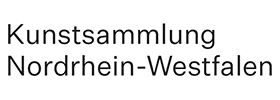
K21 Kunstsammlung Nordrhein-Westfalen
Ständehausstr. 1
40217 Düsseldorf
+49 (0)211-8381204
info@kunstsammlung.de
www.kunstsammlung.de
Tue-Sun 11-18
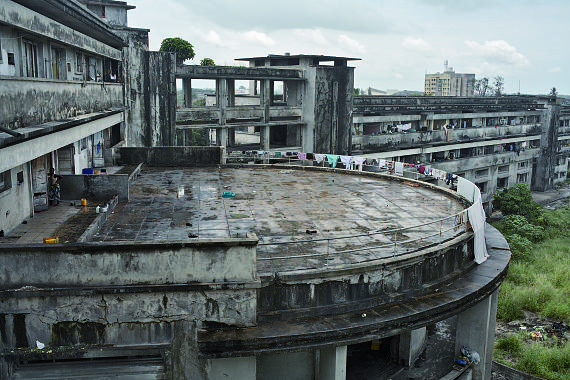
© The artist
Courtesy the artist and Stevenson, Kapstadt und Johannesburg
"Shifting Dialogues.
Photography from The Walther Collection"
Exhibition: April 9 – September 25, 2022
How are cultural and historical processes of transformation reflected in the medium of photography? With more than 500 photographic works from Africa, its diaspora, and Europe, the exhibition "Shifting Dialogues. Photography from The Walther Collection" traces the development of photography as a history of transnational parallels and contradictions: showcasing the beginnings of ethnographic images during the colonial era, self-determined studio photography — and politics of self-fashioning — from the 1940s onwards, and the potent visual activism practiced by a constituency of contemporary artists in the present. The photographic and lens-based media artworks assembled here systematically reveal the ambivalent — and shifting — relationship between image and self-image, portraiture and social identity, representation and performance.
An important point of reference is the 2010 group exhibition "Events of the Self: Portraiture and Social Identity," curated by Okwui Enwezor (1963–2019) for The Walther Collection. Enwezor, one of the most influential curators of recent decades, utilized the example of portrait photography to illustrate how photographic image production did not always develop in geographically or historically uniform, homogenous ways, characterized by multiple ruptures, contrasts as well as intimate dialogues. With his presentation, he emphasized "the conceptual and comparative relationship between different traditions of image-making" as well as the unfolding "changes in African identities and subjectivities from colonial to postcolonial modernity."
A decade later, the Kunstsammlung Nordrhein-Westfalen pays tribute to Okwui Enwezor’s pioneering curatorial vision and the extraordinary commitment of the collector Artur Walther. Thanks to their profound contributions toward expanding the cultural history of photography, we are now able to present groundbreaking projects which have hardly been considered within this museum’s discourse until now.
As in "Events of the Self," and in the exhibition "Distance and Desire" (2013) curated by Tamar Garb, the pathway through "Shifting Dialogues. Photography from The Walther Collection" at K21 is marked by several dialogical juxtapositions — Seydou Keita and August Sander; Malick Sidibé, J.D. 'Okhai Ojeikere and Bernd & Hilla Becher, Santu Mofokeng and Alfred Martin Duggan-Cronin — that offer focused time capsules for contemplation. They sketch out the complex interrelationships between unfolding societal transformations, social change, politics of identity, and artistic production. Here, the myriad possibilities of documen- tary portraiture, the importance of typological, taxonomic, and serial structures for the medium of photography as well as the power – and ambivalent nature – of the photographic gaze are made evident.
The historical dialogues are accompanied by queer performative portraits by the late Rotimi Fani-Kayode (1955–1989) as well as conceptual bodies of works by contemporary artists such as Yto Barrada, Samuel Fosso, Sabelo Mlangeni, Zanele Muholi, MwangiHutter, Grace Ndiritu, and Berni Searle. Characterized by visual activism, social critique and subversive politics, the works – produced largely in the early 2000s – question prevalent concepts of the (black) body and break with conventional gender binaries, while challenging cultural appro- priation and structural racism.
The photographic works of Theo Eshetu, David Goldblatt, Santu Mofokeng, Jo Ractliffe, Mi- khael Subotzky, and Guy Tillim focus on the human habitat: the built environment, the dense structures of inner cities, or the vast, empty landscape with its imprint of historical trauma. Their works are inscribed with traces of (post)colonial and (post)industrial conflicts as well as testimonies to collective memory and spirituality.
The voices of a younger generation of artists are represented in more recently acquired works by Edson Chagas, Em'kal Eyongakpa, François-Xavier Gbré, Délio Jasse, Lebohang Kganye, Mimi Cherono Ng'ok, Mame-Diarra Niang, and Dawit L. Petros. Their practice reflects a contemporary paradigm shift in post- and decolonial discourses, offering insights into the present possibilities and complex thematics of contemporary photography from an Afrodiasporic perspective that is at once plurivocal, subjective, and critically engaged.
The exhibition is conceived in close collaboration with The Walther Collection, supported by curatorial consultant Renee Mussai.
Advised by Contemporary And (C&).
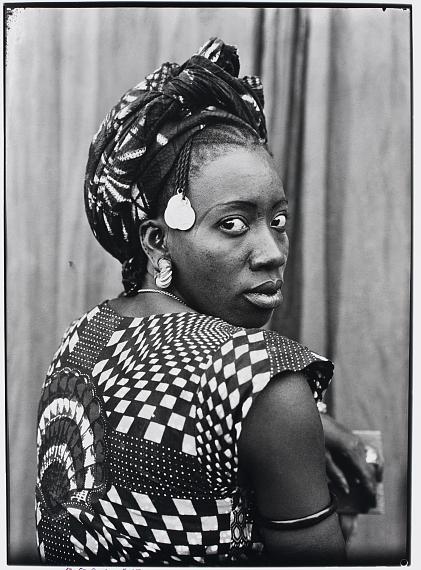
Courtesy The Walther Collection, Neu-Ulm/New York City and
CAAC - The Pigozzi Collection, Geneva
"Dialoge im Wandel"
Fotografien aus The Walther Collection
Ausstellung: 9. April bis 25. September 2022
Wie spiegeln sich historische und kulturelle Transformationsprozesse im Medium der Fotografie? Mit mehr als 500 fotografischen Werken aus Afrika, seiner Diaspora und Europa zeichnet die Ausstellung "Dialoge im Wandel. Fotografien aus The Walther Collection" die Entwicklung der Fotografie als eine Geschichte transnationaler Parallelen und Widersprüche nach. Sie zeigt die Bezüge zwischen den Anfängen ethnografischer Dispositive während der Kolonialzeit, der selbstbestimmten Studiofotografie ab den 1940er Jahren und dem visuellen Aktivismus zeitgenössischer Künstler*innen. Systematisch decken die hier zusammengestellten Fotografien und Medienkunstwerke das ambivalente – und sich wandelnde – Verhältnis zwischen Bild und Selbstbild, Porträt und sozialer Identität, Darstellung und Inszenierung auf.
Ein wichtiger Bezugspunkt ist die von Okwui Enwezor (1963–2019) kuratierte Gruppenausstellung "Momente des Selbst: Porträtfotografie und soziale Identität" 2010 in der The Walther Collection. Enwezor, einer der einflussreichsten Kuratoren der letzten Jahrzehnte, zeigte am Beispiel der Porträtfotografie, dass die Möglichkeiten der fotografischen Bildproduktion geografisch und historisch nicht gleichförmig verlaufen, sondern von Brüchen und Gegensätzen – sowie auch von Dialogen – geprägt seien. Mit seiner Präsentation versuchte er "die konzeptionelle und komparative Beziehung zwischen Traditionen des Bildermachens" und die "Veränderungen der afrikanischen Identität und afrikanischen Subjektivitäten auf dem Weg von der kolonialen zur postkolonialen Moderne" nachvollziehbar werden zu lassen.
Ein gutes Jahrzehnt später würdigt die Kunstsammlung Nordrhein-Westfalen die wegweisende Pionierleistung Okwui Enwezors sowie das außergewöhnliche Engagement des Sammlers Artur Walther. Dank ihrer fundierten Beiträge zur Erweiterung der Kulturgeschichte der Fotografie ist es uns heute möglich, bahnbrechende Bildprojekte vorzustellen, die in den Diskursen dieses Museums bisher kaum berücksichtigt wurden.
Wie 2010 in "Momente des Selbst" und der 2013 von Tamar Garb kuratierten Ausstellung "Distance and Desire", markieren auch im K21 dialogische Gegenüberstellungen mit Seydou Keïta und August Sander; Malick Sidibé, J.D. 'Okhai Ojeikere und Bernd & Hilla Becher; Santu Mofokeng und Alfred Martin Duggan-Cronin als konzentrierte Zeitkapseln den Rundgang. Sie skizzieren die komplexen und sich wandelnden Wechselbeziehungen zwischen gesellschaftlichen Veränderungen, sozialen Identitätsprozessen und künstlerischen Bildproduktionen. Sichtbar werden die dokumentarischen Möglichkeiten der Porträtdarstellung, die Bedeutung typologischer, taxonomischer und serieller Strukturen für das Medium der Fotografie sowie die Macht und Ambivalenz des fotografischen Blicks.
Die historischen Dialoge werden begleitet von queer-performativen Porträts von Rotimi Fani- Kayode (1955–1989) sowie seriell angelegten Werkzyklen künstlerisch-konzeptuell arbeitender Fotograf*innen wie Yto Barrada, Samuel Fosso, Sabelo Mlangeni, Zanele Muholi, MwangiHutter, Grace Ndiritu oder Berni Searle. Geprägt von visuellem Aktivismus und subversiver Agenda stellen die vorwiegend in den frühen 2000er Jahren entstandenen Arbeiten binäre Körperkonzepte in Frage, brechen mit konventionellen Geschlechterrollen und fechten kulturelle Aneignung und strukturellen Rassismus an.
In den fotografischen Arbeiten von Theo Eshetu, David Goldblatt, Santu Mofokeng, Jo Ractliffe, Mikhael Subotzky und Guy Tillim steht der Lebensraum des Menschen im Fokus: Der bebaute Raum, die verdichteten Strukturen der Großstädte oder die weite, leere Landschaft. In diese haben sich die Spuren (post)kolonialer und (post)industrieller Auseinandersetzungen ebenso eingeschrieben wie die Zeugnisse von Spiritualität, Trauma und kollektiver Erinnerung.
Die Stimmen jüngerer Künstler*innen sind vertreten durch neu erworbene Werke von Edson Chagas, Em’kal Eyongakpa, François-Xavier Gbré, Délio Jasse, Lebohang Kganye, Mimi Cherono Ng’ok, Mame-Diarra Niang und Dawit L. Petros. Ihre Werke stehen für einen zeitgenössischen Paradigmenwechsel in post- und dekolonialen Gegenwartsdiskursen und geben Einblick in die gegenwärtigen Möglichkeiten und komplexen thematischen Verdichtungen einer vielstimmigen, subjektiven und engagierten Fotografie aus afro-diasporischer Perspektive.
Die Ausstellung wird von Maria Müller-Schareck und Vivien Trommer kuratiert, in Zusammenarbeit mit The Walther Collection konzipiert und kuratorisch begleitet von Renée Mussai.
Beratung durch Contemporary And (C&)

© The artist
Courtesy the artist und The Walther Collection, Neu-Ulm/New York City
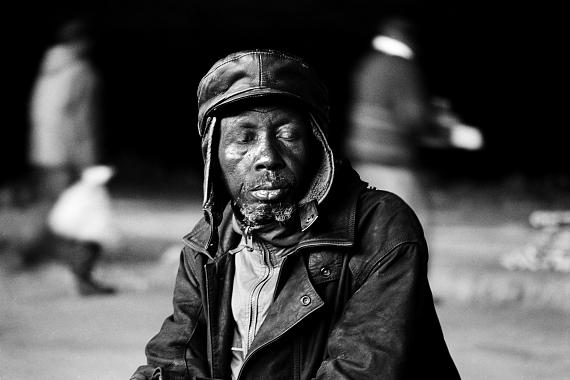
© The artist
Courtesy the artist and MAKER/Lunetta Bartz, Johannesburg